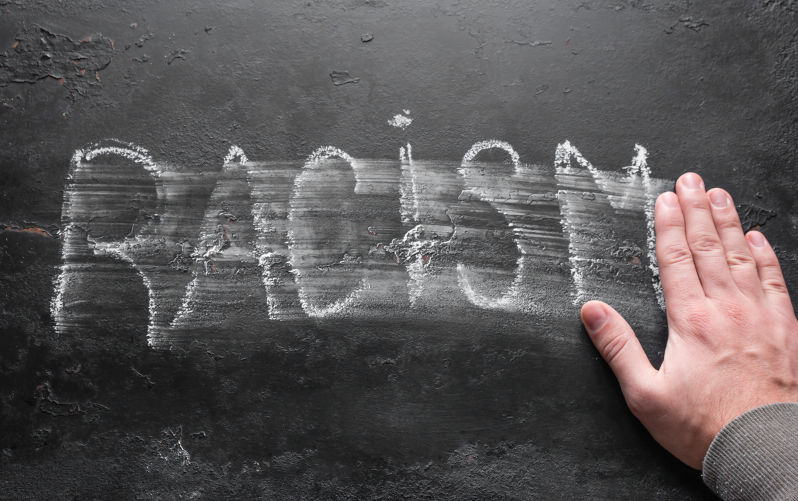Ignoring the impact of racism undermines effective policymaking
May 5, 2025
We have heard about a variety of urgent issues during the federal election campaign in the past few weeks and months, from cost of living, immigration, crime and health to housing and energy policies, but one of the topics that have received no attention — indeed never appeared high on the political agenda — is how to address racism.
No major political party in Australia (or elsewhere) seems to think it can gain popular support or score political points by campaigning around anti-racism.
It’s not that Australians are overwhelmingly ignorant to the fact that racism is still an issue. According to the 2024 Scanlon Mapping Social Cohesion survey, 63% of adults believe racism is a very big or fairly big problem in Australia. For many years study after study — and the often unheard voices from affected communities — have consistently confirmed that this is the case: racism remains part of the lives of many in Australia – First Nations people, non-Anglo/non-white immigrants and their Australian-born descendants and people from various faith communities.
Why then is it such a non-issue? Why do political parties, while regularly praising Australia’s alleged multicultural “success story”, not compete over how to best tackle racism?
Going by the Scanlon findings, 37% don’t consider it to be a problem. Denial of racism is itself a crucial property, as Teun van Dijk noted. But that can’t be the full story. There is also widespread discomfort and reluctance to talk about it beyond, at best, condemning racism when it shows its ugly face overtly and undeniably.
Another reason is the generally low level of racial literacy in our post-colonial settler society, where an estimated one-third of people are from a non-Anglo-Saxon background. Racism is still mostly perceived simplistically as something that manifests solely as prejudice and person-to-person discrimination or vilification. Conversations about systemic and institutional racism, reflected (also) in persistent misrepresentation and exclusion from societal positions of power, don’t resonate with most Australians; these arguments are seen as “academic”, abstract and intangible.
For many, the problem of racism lies solely in the misbehaviour of a few “racist” people, ignoring the fact that it’s profoundly tied to, and reflected in, racial hierarchies and white-Anglo normativity baked into our society, historically and today. As John Balwyn writes more generally, racism manifests as an interplay between prejudiced “attitude, communicative action, policy, and social structure”.
The under-appreciation of the systemic nature of racism hampers a mature and much-needed public debate. It keeps anti-racism off the political agenda. But the incapacity to recognise racism as a systemic problem also undermines our ability to address other social issues that are high on this agenda of “things that matter” – issues that may seem unrelated to racism, but are profoundly affected by it.
Let’s look at the mental health crisis, for example, a complex problem that requires multifaceted actions. How do policymakers expect to effectively address this crisis in a multicultural society without also addressing racism? For decades, empirical studies have shown that racism is a key determinant of mental and physical health. In Australia, a recent review confirmed “racism is associated with negative overall mental and negative general health outcomes among Aboriginal and Torres Strait Islander peoples”. Reducing racism would therefore need to be part of any mental health policy in Australia.
Another issue that appears frequently in political debates is crime, in particular youth crime. While it’s important to stress that crime is not a racial, but a social issue, these public debates are often politicised and shaped by moral panic and racialised narratives – and they entirely ignore that individual and collective experiences of racism and other forms of marginalisation and exclusion can increase the propensity to engage in deviant and criminal behaviour. Studies in the US have found, for example, that “racial discrimination is positively associated with increased crime in large part by augmenting depression, hostile views of relationships, and disengagement from conventional norms”. While criminal justice practitioners in Australia are well aware of that, and have been discussing this link internally, policymakers rather focus on tightening bail provisions than addressing racism as part of a much-needed multipronged prevention strategy.
Mental health and crime are only two of many “issues that matter”, which can’t be effectively addressed without acknowledging the role of racism and without a systemic approach to combat racism. This applies similarly to a range of other areas, from education to employment, where racism also creates major barriers.
We should not need such “policy argument” to convince anyone that tackling racism deserves to be high on the political agenda. Racism undermines and contradicts liberal democratic principles and, most importantly, has devastating effects on people’s dignity, sense of safety and belonging, as well as community trust and connectedness. But for those who still consider these arguments to be insufficient, remember that we won’t be able to effectively address many of the complex and urgent social problems, which we rightly consider important, without tackling one of their common root causes – racism.

